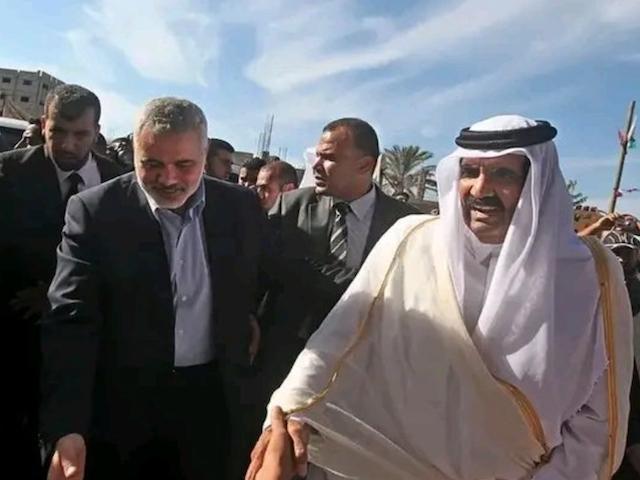Dr. Udi Levi, a former senior Mossad official, has voiced strong criticism of Israel's diplomatic approach towards Qatar, particularly concerning financial support to Hamas. As the ex-leader of Mossad's Harpoon task force, dedicated to disrupting terrorist financing, Levi highlights a complex situation where Hamas, despite prolonged IDF confrontations, remains financially robust, largely due to Qatari funding.
Levi, now a senior fellow at the Jerusalem Institute for Strategy and Security, emphasizes that Qatar plays a crucial role in Hamas's financial stability. He argues, in an interview with the Israeli publication "Calcalist", that while Qatar might be pressured to change its stance, it is unlikely to abandon Hamas completely. Levi suggests leveraging Qatar's concern for its global reputation to compel a change in its support for Hamas.
Process reported between the head of the Mossad and Qatar’s prime minister on another possible hostage deal.
— Jonathan Schanzer (@JSchanzer) December 17, 2023
I still can’t believe the Qataris are being treated as positive players in this drama.
Reminder: Qatar is a Hamas-funding state sponsor of terrorism. https://t.co/ncuAjwAyBt
The New York Times recently spotlighted Levi’s work in uncovering Hamas's economic networks. Under his leadership, Mossad discovered that Hamas's financial resources extended beyond Qatari aid, encompassing Iranian funds, a Turkish public company, diverse bank-managed investment portfolios, and real estate. Levi recounts that initially, Hamas's finances were concentrated in supportive Arab states but have since become more sophisticated and harder to track.
Levi criticizes former Prime Minister Benjamin Netanyahu for ignoring the economic aspect of the Hamas threat, as highlighted in the New York Times report. He expresses frustration over Netanyahu's dismissal of security warnings about the financial empowerment of Hamas, particularly through Qatari cash transfers.
He also reflects on the challenges faced in countering Hamas's financial operations. Despite significant efforts to monitor and disrupt these networks, international cooperation was vital. Levi notes the paradox in Israel's stance: seeking global support to curb Hamas's finances while simultaneously allowing Qatari cash infusions into Gaza.
Why are the people calling for a ceasefire not demanding:
— Nicole Lampert (@nicolelampert) December 19, 2023
1) the return of the hostages
2) the surrender of Hamas
3) Qatar arrest Hamas leaders
4) Iran stops funding terrorism? https://t.co/qy7oOOAsEw
Dr. Shlomit Wagman, a globally recognized expert in combating money laundering and terror financing, echoes Levi's views. She points out missed opportunities for international action against entities linked to Hamas due to the precedent set by Israel's acceptance of Qatari funds.
Levi warns of Qatar's broader ambitions and influence, which extend far beyond the Israeli-Palestinian context. He raises concerns about Qatar's global investments and the potential for these financial activities to be driven by a larger goal of promoting an Islamic worldview, emphasizing the need for vigilance and strategic diplomacy in addressing these challenges.


